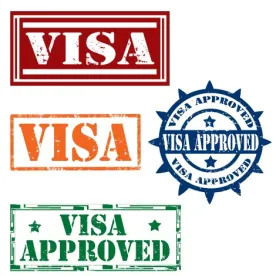In a decision issued March 10, 2020, the U.S. District Court for the District of Columbia rejected U.S. Citizen and Immigration Services (USCIS) policies against H-1B visa holders. The issue was the sequence of memoranda and policy implementation by USCIS during the last 10 years the court considered unlawful as it has no basis in agency regulation or in the Immigration and Naturalization Act (INA).
Following the ITServe Alliance, Inc. v. Cissna decision, USCIS agreed to a settlement with ITServe Alliance reversing USCIS policy on two issues that previously resulted in H-1B denials:
-
The Employer-Employee relationship: The court found the limited meaning of “employer-employee relationship” as announced and implemented by USCIS’ 2018 Policy Memorandum is inconsistent with the longstanding Immigration and Naturalization Service (INS) 1991 regulation. USCIS’ interpretation required the employer list the H-1B visa holder’s day-to-day tasks in such detail that few employers could satisfy this threshold. This interpretation mostly affected IT companies placing their H-1B workers at third-party worksites. The regulation specifies the employer may “hire, pay, fire, supervise, or otherwise control the work of any such employee…” (emphasis added). The court ruling clarifies the use of “or” in the regulation allows a single listed factor can establish the requisite “control” to demonstrate an employer-employee relationship.
In the settlement, USCIS agrees it will not apply its interpretation of the current regulatory language, see Neufeld Memo 2010 and 2018 Contract and Itinerary Memorandum, but rather, use common law in the required analysis of the employer-employee relationship.
-
Proof of non-speculative work assignments, itineraries and short approvals: The court found USCIS’ application of the regulations is arbitrary and capricious, requiring contracts or other corroborated evidence of dates and locations of temporary work assignments for three future years. See 2018 Contract and Itinerary Memorandum. As a result of this policy, USCIS had increasingly been granting shorter validity periods than the three years requested in the H-1B petitions. In its ruling, the court recognizes under the American Competitiveness and Workforce Improvement Act of 1998 (ACWIA), employers could retain an H-1B employee during “nonproductive” periods as long as the company paid the H-1B visa holder.
In the settlement, USCIS is required to rescind “in its entirety within 90 days” the 2018 Contract and Itinerary Memorandum. The court’s decision stated this memorandum introduced a practice of granting visa petitions for IT consultants for less than three years, which represented a change after decades of past practice, making USCIS’s actions arbitrary and capricious. As such, per the settlement agreement, “USCIS will not issue approvals for H-1B petitions with validity periods shorter than the time period requested by the H-1B petitioner, unless such decisions include or are accompanied by a brief explanation as to why the validity period has been limited…”
Although the settlement does not require USCIS to review past H-1B decisions, it may make the preparation of H-1B petitions less burdensome for IT employers with third-party placements in the future.


 />i
/>i

